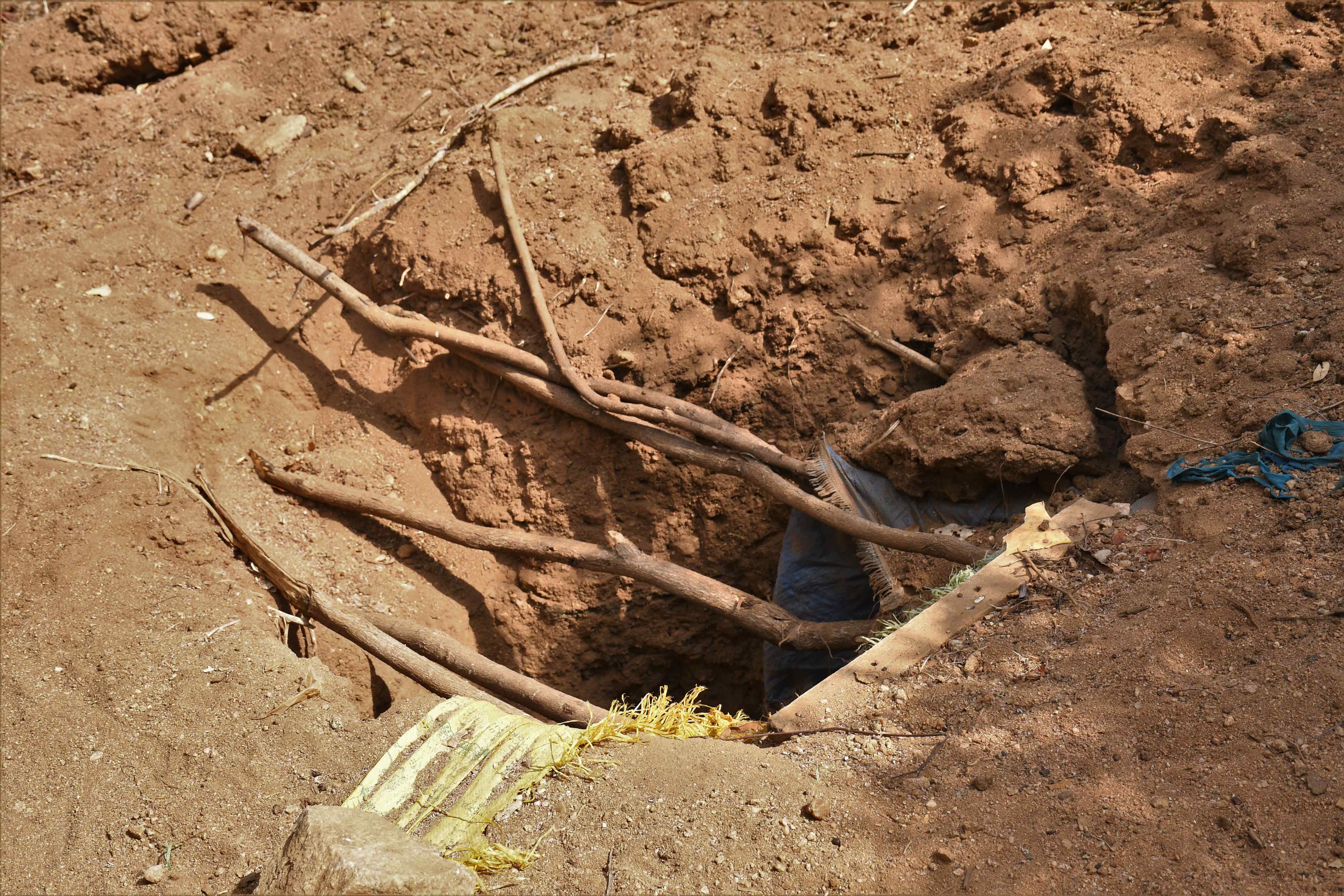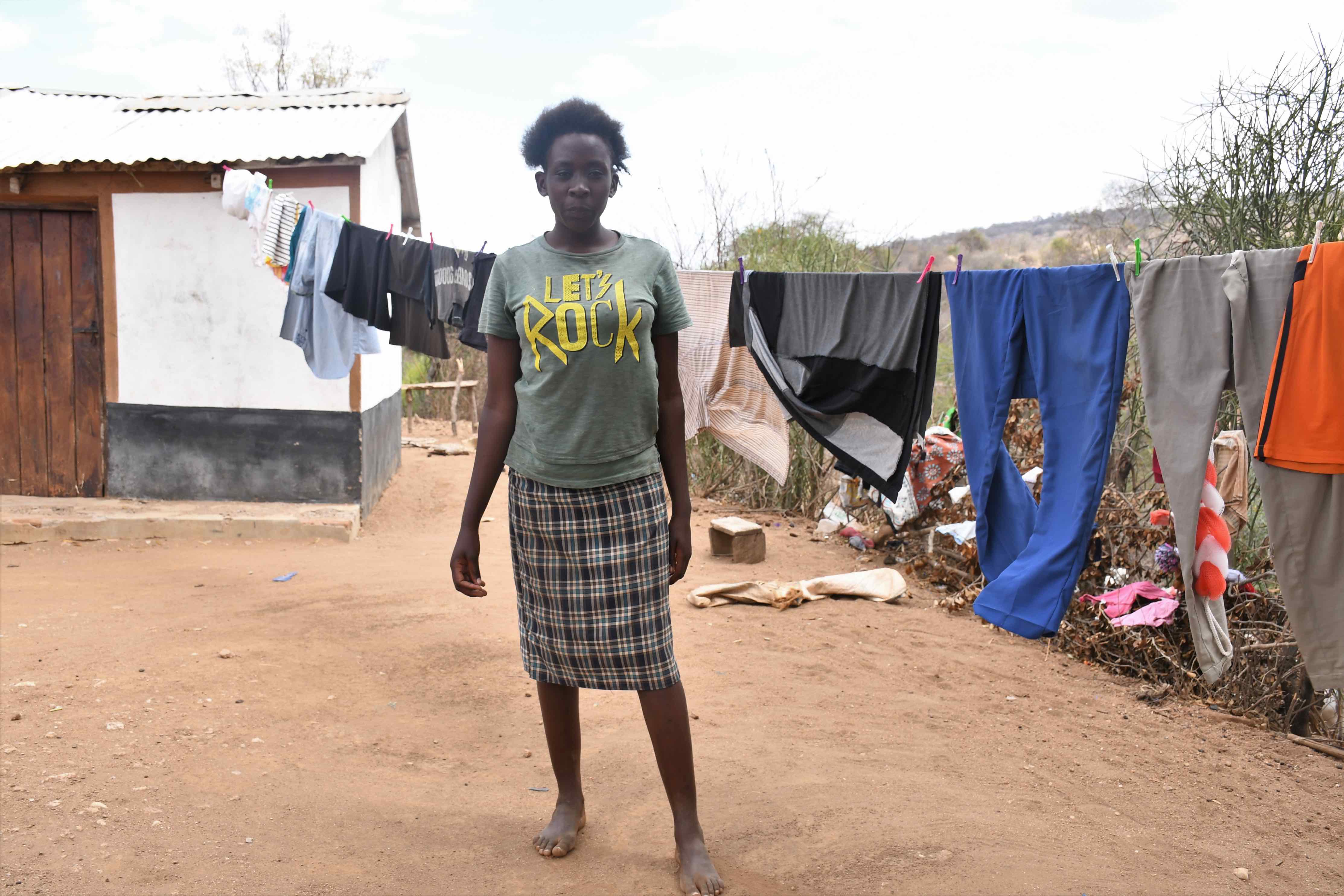Because of the acute water scarcity in this region, some community members walk more than two hours each way to fill their buckets and jerrycans with salty, unsafe water. They arrive home feeling exhausted and unable to focus entirely on other activities such as farming and livestock keeping.
The arid climate means that the river that once flowed through this region is now dry most of the year. This leaves the people here with two options: buy water or dig a deep scoop hole (pictured below) where the river once was to reach water deep underground.

"I have to walk together with the rest of my family to fetch water from the water point, which culminates into exhaustion," said Cynthia M., 17 (pictured below). "Despite walking over five kilometers (three miles) to purchase water from the water points within the community, the water is salty and contaminated."

Hygiene and sanitation in the area are below human standards. Most of the community members are unable to brush their teeth or bathe because of the water crisis. Homes are not cleaned regularly. Poultry animals can also find their way to households' interiors, which further deteriorates hygiene.
Latrines are rarely cleaned, with most families pouring wood ash inside to reduce the unpleasant smell. The latrines' pits are also open so that houseflies can spread germs to other homestead areas.
Because of the unsafe water and unclean conditions, people complain of stomach aches, while others have been diagnosed with infections such as typhoid, amoeba, and dysentery.
"With the construction of the sand dam and shallow well, my water scarcity issues will be thwarted, and I can concentrate on my studies more," Cynthia concluded.
Reliable Water for Kiliku
Our main entry point into this community has been the Kiliku Self-Help Group, which comprises households working together to address water and food scarcity in their region. These members will be our hands and feet in constructing water projects and spreading the message of good hygiene and sanitation to everyone.
Hand-Dug Well
This particular hand-dug well will be built adjacent to a sand dam project, which will supply clean drinking water once it rains. We have provided the group with the tools needed for excavation. With the guidance of our artisans and mechanics, the excavated well will be cased, sealed with a well pad, and then finished with a new AfriDev pump.
Excavation takes a month or more on average, depending on the nature of the rock beneath. Construction of the well lining and installation of the pump takes 12 days maximum. The well will be lined with a concrete wall including perforations so that once it rains, water will filter in from the sand dam.
This well will bring clean water closer to families.
New Knowledge
These community members currently do their best to practice good hygiene and sanitation, but their severe lack of water has significantly hindered reaching their fullest potential.
We will hold hygiene and sanitation training sessions with the Self-Help Group and other community members to teach essential hygiene practices and daily habits to establish at the personal, household, and community levels. This training will help to ensure that participants have the knowledge they need to make the most out of their new water point as soon as the water is flowing.
One of the most important topics we plan to cover is handling, storage, and water treatment. Having a clean water source will be extremely helpful, but it is useless if water gets contaminated when it is consumed. We will also emphasize the importance of handwashing.
The community and we firmly believe that all of these components will work together to improve living standards here, which will help to unlock the potential for these community members to live better, healthier lives.
We typically work with self-help groups for 3 to 5 years on multiple water projects. We will conduct follow-up visits and refresher training during this period and remain in contact with the group after all of the projects are completed to support their efforts to improve sanitation and hygiene.

 Protected Dug Well
Protected Dug Well
 Rehabilitation Project
Rehabilitation Project































